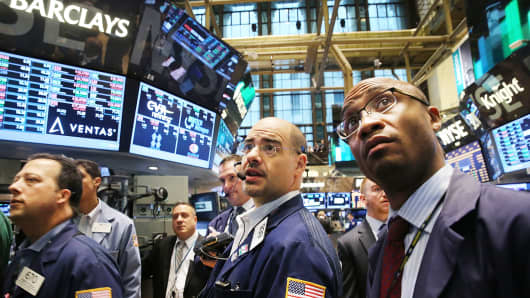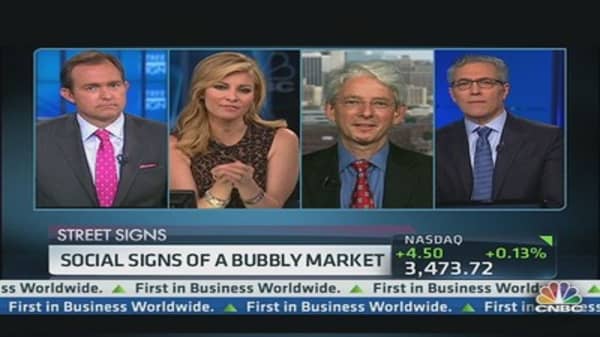Markets have been tense for the past several weeks, as talk picked up that the Fed could start to wind down some of its $85 billion in bond purchases. That talk has been driven by comments from Fed officials, some of whom believe the Fed should wind down purchases now. Even dovish Fed Chairman Ben Bernanke spooked markets when he said the Fed could start tapering back its purchases in the next couple of months if the economy proves strong enough.
(Read More: For Some Investors, Federal Reserve Can Start Tapering NOW)
Zane Brown, Lord Abbett fixed income strategist, doesn't see rates rising that much more for now, and he said many in the markets are ignoring the Fed's comments that it will need to see improvement in the economy in order to taper. "Now there's fear the Fed will still unwind, and nobody's paying attention to the Fed's requirement that you have self-sustaining economic growth before they start doing it," he said.
"I think we are close to a turning point in terms of Fed comments and maybe even quantitative easing policy," he said, noting the tapering talk has driven 30-year mortgage rates above 4 percent, a risk for housing's recovery.
Brown said fixed income looks cheaper than it did a month ago and the selling is overdone, in anticipation of the Fed pulling back. Equities still look favorable, especially if investors expect the economy to improve.
"It could be an inflection point, especially if you have investors look at their May statement and see losses in high quality fixed income. That could provoke the start of the great rotation," he said.
Brown said the Fed will likely do something to stop the rise in yields if it continues. "The jawboning probably begins within the FOMC at this next meeting, and they could provide a more uniform message from the Fed which could help their own cause and cause less volatility in the market," he said. The Fed's next meeting is next week, ending Wednesday with a Bernanke press briefing.
(Read More: Bond Sell-Off Heightens Risk of '1994 Moment')
Knapp said if history is a guide, first interest rate sensitive stocks sell off, which has happened, then cyclicals get hit. If the Fed actually moves to pare back easing and the economy is not improving, earnings will not improve. "You're sort of in a lose, lose in terms of buying the cyclicals," he said. "They will go down more if it's not the real deal and ISM is sending the right signal about what's going on with growth, then the cyclicals are ahead of themselves."
What Else to Watch
Traders were watching to see the outcome of the Bank of Japan meeting overnight, after Japanese stocks gained five percent Monday on better GDP and a weaker yen.
Germany's federal constitutional court holds the first day of hearings on the legality of the European Central Bank's bond buying program, or OMT. The Bundesbank's Jens Weidmann is opposed to it and he has said it is a direct funding of government budgets, threatening the ECB's independence and hurting its mandate of price stability.
(Read More: Mario Draghi Goes on a German Charm Offensive)
E3, the videogame trade show, starts in Los Angeles.
Lululemon holds its shareholders meeting and it will be in the spotlight after its stock fell more than 12 percent in the after hours session. The company announced Monday that CEO Christine Day will step down. The news came a few months after the company had to recall one of its yoga pants for being too sheer.
Facebook also holds its annual meeting.
Texas Instruments slid in after hours trading after its second quarter outlook. The company said PCs and notebooks are weak this quarter, as it had expected.





